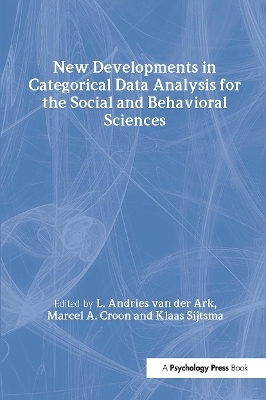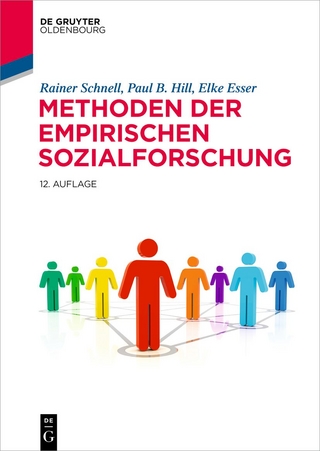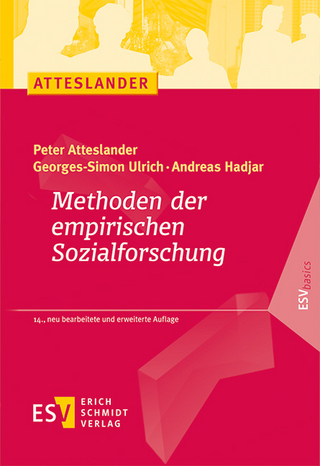
New Developments in Categorical Data Analysis for the Social and Behavioral Sciences
Psychology Press (Verlag)
978-0-8058-4728-4 (ISBN)
This volume concentrates on latent class analysis and item response theory. These methods use latent variables to explain the relationships among observed categorical variables. Latent class analysis yields the classification of a group of respondents according to their pattern of scores on the categorical variables. This provides insight into the mechanisms producing the data and allows the estimation of factor structures and regression models conditional on the latent class structure. Item response theory leads to the identification of one or more ordinal or interval scales. In psychological and educational testing these scales are used for individual measurement of abilities and personality traits.
The focus of this volume is applied. After a method is explained, the potential of the method for analyzing categorical data is illustrated by means of a real data example to show how it can be used effectively for solving a real data problem. These methods are accessible to researchers not trained explicitly in applied statistics. This volume appeals to researchers and advanced students in the social and behavioral sciences, including social, developmental, organizational, clinical and health psychologists, sociologists, educational and marketing researchers, and political scientists. In addition, it is of interest to those who collect data on categorical variables and are faced with the problem of how to analyze such variables--among themselves or in relation to metric variables.
van der Ark, L. Andries; Croon, Marcel A.; Sijtsma, Klaas
Contents: Preface. L.A. van der Ark, M.A. Croon, K. Sijtsma, Statistical Models for Categorical Variables. J.A. Hagenaars, Misclassification Phenomena in Categorical Data Analysis: Regression Toward the Mean and Tendency Toward the Mode. J.K. Vermunt, J. Magidson, Factor Analysis With Categorical Indicators: A Comparison Between Traditional and Latent Class Approaches. O. Laudy, J. Boom, H. Hoijtink, Bayesian Computational Methods for Inequality Constrained Latent Class Analysis. W.P. Bergsma, M.A. Croon, Analyzing Categorical Data by Marginal Models. I. Moustaki, M. Knott, Computational Aspects of the E-M and Bayesian Estimation in Latent Variable Models. P.W. van Rijn, P.C.M. Molenaar, Logistic Models for Single-Subject Time Series. L.A. van der Ark, K. Sijtsma, The Effect of Missing Data Imputation on Mokken Scale Analysis. H. Kelderman, Building IRT Models From Scratch: Graphical Models, Exchangeability, Marginal Freedom, Scale Types, and Latent Traits. T.M. Bechger, G. Maris, H.H.F.M. Verstralen, N.D. Verhelst, The Nedelsky Model For Multiple-Choice Items. K. Draney, M. Wilson, Application of the Polytomous Saltus Model to Stage-Like Proportional Reasoning Data. J-P. Fox, Multilevel IRT Model Assessment.
| Erscheint lt. Verlag | 24.12.2004 |
|---|---|
| Reihe/Serie | Quantitative Methodology Series |
| Verlagsort | Philadelphia |
| Sprache | englisch |
| Maße | 152 x 229 mm |
| Gewicht | 521 g |
| Themenwelt | Sozialwissenschaften ► Soziologie ► Empirische Sozialforschung |
| ISBN-10 | 0-8058-4728-6 / 0805847286 |
| ISBN-13 | 978-0-8058-4728-4 / 9780805847284 |
| Zustand | Neuware |
| Haben Sie eine Frage zum Produkt? |
aus dem Bereich


